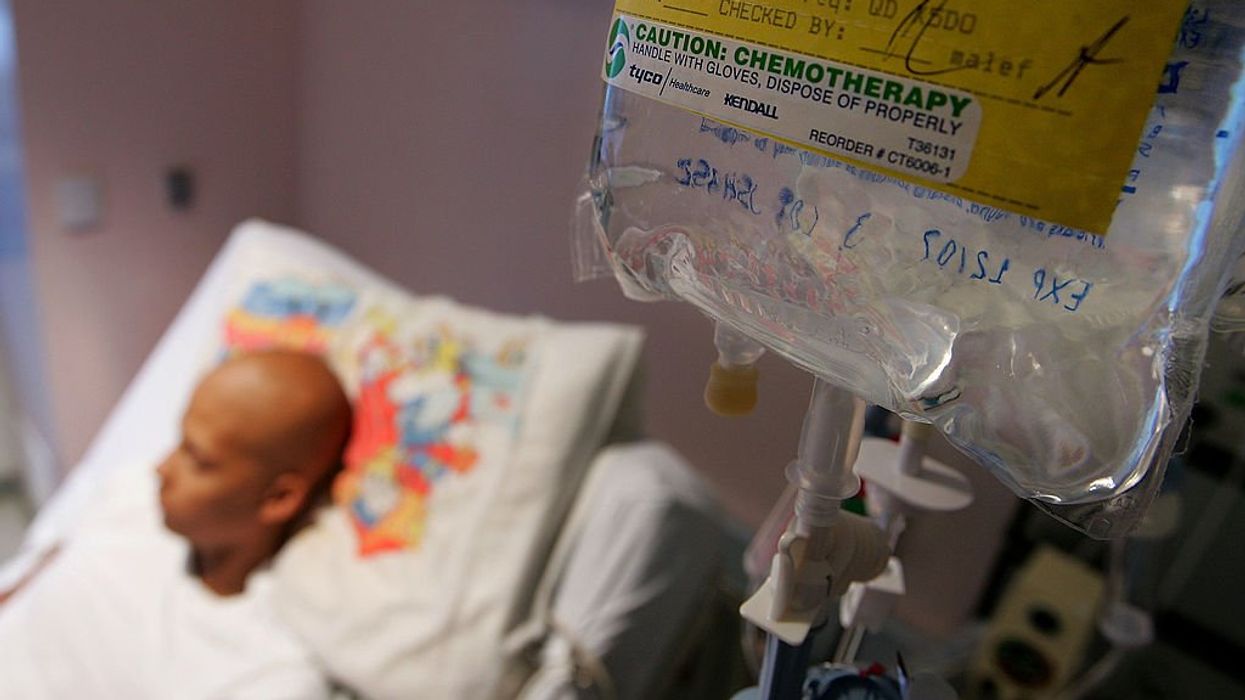
Justin Sullivan/Getty Images

Cancer is striking more young people, and doctors are "baffled" by the alarming surge in cases, according to a new report.
The Wall Street Journal reported on Thursday, "Cancer is hitting more young people in the U.S. and around the globe, baffling doctors."
"Diagnosis rates in the U.S. rose in 2019 to 107.8 cases per 100,000 people under 50, up 12.8% from 95.6 in 2000, federal data show," according to the WSJ.
The report cited a 2023 study published in BMJ Oncology that found, "Global incidence of early-onset cancer increased by 79.1% and the number of early-onset cancer deaths increased by 27.7% between 1990 and 2019."
The study found the highest rates of people under 50 with cancer in North America, Australasia, and Western Europe. The lowest rates of cancer in young people were in Western Sub-Saharan Africa and Central Sub-Saharan Africa.
The fastest-increasing cancers across the globe were early-onset nasopharyngeal and prostate cancer.
The study found the deadliest were early-onset breast, tracheal, bronchus and lung, stomach, and colorectal cancers.
In 2019, one in five new colorectal cancer patients were under 55— nearly double the rate in 1995.
According to the news outlet, doctors suspect the increase in cancer appearance in young people is likely caused by engaging in less physical activity, more ultra-processed foods, and new toxins.
The authors of the study noted, "Encouraging a healthy lifestyle could reduce early-onset cancer disease burden."
"The patients are getting younger," said Dr. Andrea Cercek — who co-directs a program for early-onset gastrointestinal cancer patients at Memorial Sloan Kettering Cancer Center in New York. "It's likely some environmental change, whether it’s something in our food, our medications, or something we have not yet identified."
"Overall trends show many of the cancers with the largest increases in early-onset disease are in the gastrointestinal tract, including cholangiocarcinoma, colorectal, gastric, appendix, and pancreatic cancers," said Suneel D. Kamath — a gastrointestinal medical oncologist at the Cleveland Clinic Taussig Cancer Institute.
Sachin Apte — chief clinical officer at Huntsman Cancer Institute at the University of Utah Health — asked, "Is it part of a larger trend or are we just getting unhealthier?"
“From our data, we observed something called the birth cohort effect, Since 1950, we found that each successive generation has a higher risk of early-onset cancer. Someone born in 1960 has a higher risk than someone born in 1950, and someone born in 1970 has a higher risk than someone born in 1960. It’s just continuing," said Dr. Shuji Ogino — professor of pathology and Epidemiology at Harvard Medical School.
Following a significant increase in cases in younger adults, the U.S. Preventive Services Task Force changed its colorectal cancer screening recommendation from age 50 to 45 in May 2021. Last year, the task force lowered screening recommendation for breast cancer from age 50 to 40 for women with an average risk.
The silver lining is that the U.S. cancer death rate has dropped 33% between 1991 and 2020, according to a report published in CA: A Cancer Journal for Clinicians. The study published on Thursday found that approximately 3.8 million cancer deaths have been averted in that time period.
"This steady progress is because of reductions in smoking; uptake of screening for breast, colorectal, and prostate cancers; and improvements in treatment, such as adjuvant chemotherapies for colon and breast cancers," the authors of the study wrote. "More recently, advances in the development of targeted treatment and immunotherapy have accelerated progress in lung cancer mortality well beyond reductions in incidence and are reflected in large mortality reductions for cancers with increasing or stable incidence (leukemia, melanoma, and kidney cancer)."
The research discovered that breast, prostate, and uterine corpus cancers have increased.
The study projected that there were 1,958,310 new cancer cases in 2023 and 609,820 cancer deaths in the United States.
Like Blaze News? Bypass the censors, sign up for our newsletters, and get stories like this direct to your inbox. Sign up here!